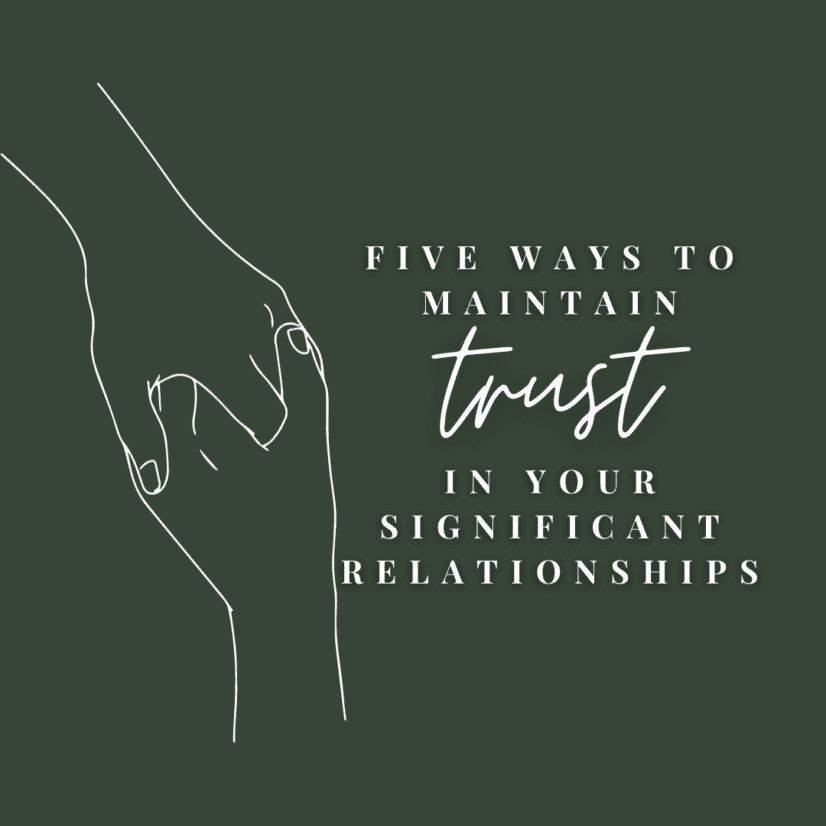Trust and commitment are necessary for relational stability and emotional safety. This rule applies to all relationships, not just romantic relationships.
While trust and commitment go hand-in-hand, today we’re going to focus on trust.
Because trust is a cornerstone element, it’s important to evaluate and know where you stand with your partner with regard to trust and to intentionally work to strengthen trust.
Here are 5 ways you can do just that:
1. Turn towards your partner.
Opportunities for nurturing trust happen when we share a bit of ourselves with another. John Gottman, who has spent more than 40 years studying what he calls “master” and “disaster” couples, describes these nurturing opportunities as “bids.” Bids do not need to be large to have an impact.
Turning towards your partner happens when you acknowledge the bid for attention in a positive manner. When this happens, trust grows. The other options are turning away from your partner. You ignore them or worse, turn against them, by responding negatively.
Choosing to turn away or turn against your partner will erode trust.
2. Take time to find out what is going on in your partner’s life.
Ask open-ended questions that cannot be answered with a simple “yes” or “no.” Use these questions as opportunities to turn towards your partner by giving them your attention and truly being interested.
Unless specifically asked for, refrain from giving advice.
3. Seek out the positive. Be intentional about appreciating your partner.
Each day tell your partner at least three things that you appreciate either about them or about actions they have taken.
4. Develop awareness of your potential to criticize or become defensive.
When we feel that our own needs are not being met, it’s easy to blame rather than to share that we are hurting. Blaming will likely trigger defensiveness.
5. Be the partner that you desire.
If you want to strengthen trust in your relationship, you have to give up trying to change your partner and focus on being the kind of partner that you desire. If trust has significantly eroded, this is probably going to be tough for you and may require the help of a couple’s therapist.
Most couples hit gridlock because each partner is waiting for the other to first prove that he or she will meet their needs. Each is coming from the stance of “you go first.” That is a losing game. Someone has to go first, and if you are reading this desiring or seeking change: go first!
If you experience difficulty with any of the action items above, then it’s time to get some professional help from a couple’s therapist.
The effort required to rebuild and strengthen trust in a relationship that you value and are committed to is an effort that pays great dividends.
Written by: Jackie Dunagan, LMFT, AAMFT Approved Supervisor

